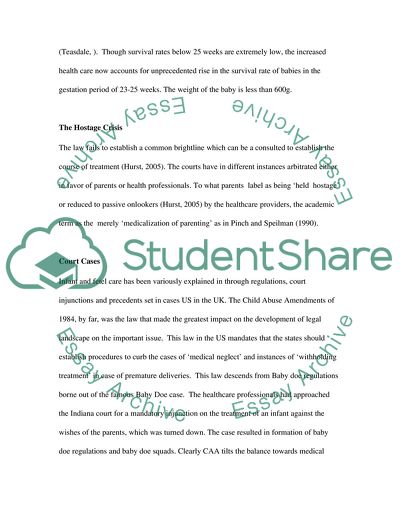Cite this document
(Ethical Dilemmas in Extreme Prematurity Article, n.d.)
Ethical Dilemmas in Extreme Prematurity Article. Retrieved from https://studentshare.org/health-sciences-medicine/1716573-ethical-dilemmas-in-extreme-prematurity-what-gestational-age-should-resuscitation-efforts-for-premature-infants-be-instituted-or-withheld
Ethical Dilemmas in Extreme Prematurity Article. Retrieved from https://studentshare.org/health-sciences-medicine/1716573-ethical-dilemmas-in-extreme-prematurity-what-gestational-age-should-resuscitation-efforts-for-premature-infants-be-instituted-or-withheld
(Ethical Dilemmas in Extreme Prematurity Article)
Ethical Dilemmas in Extreme Prematurity Article. https://studentshare.org/health-sciences-medicine/1716573-ethical-dilemmas-in-extreme-prematurity-what-gestational-age-should-resuscitation-efforts-for-premature-infants-be-instituted-or-withheld.
Ethical Dilemmas in Extreme Prematurity Article. https://studentshare.org/health-sciences-medicine/1716573-ethical-dilemmas-in-extreme-prematurity-what-gestational-age-should-resuscitation-efforts-for-premature-infants-be-instituted-or-withheld.
“Ethical Dilemmas in Extreme Prematurity Article”, n.d. https://studentshare.org/health-sciences-medicine/1716573-ethical-dilemmas-in-extreme-prematurity-what-gestational-age-should-resuscitation-efforts-for-premature-infants-be-instituted-or-withheld.


